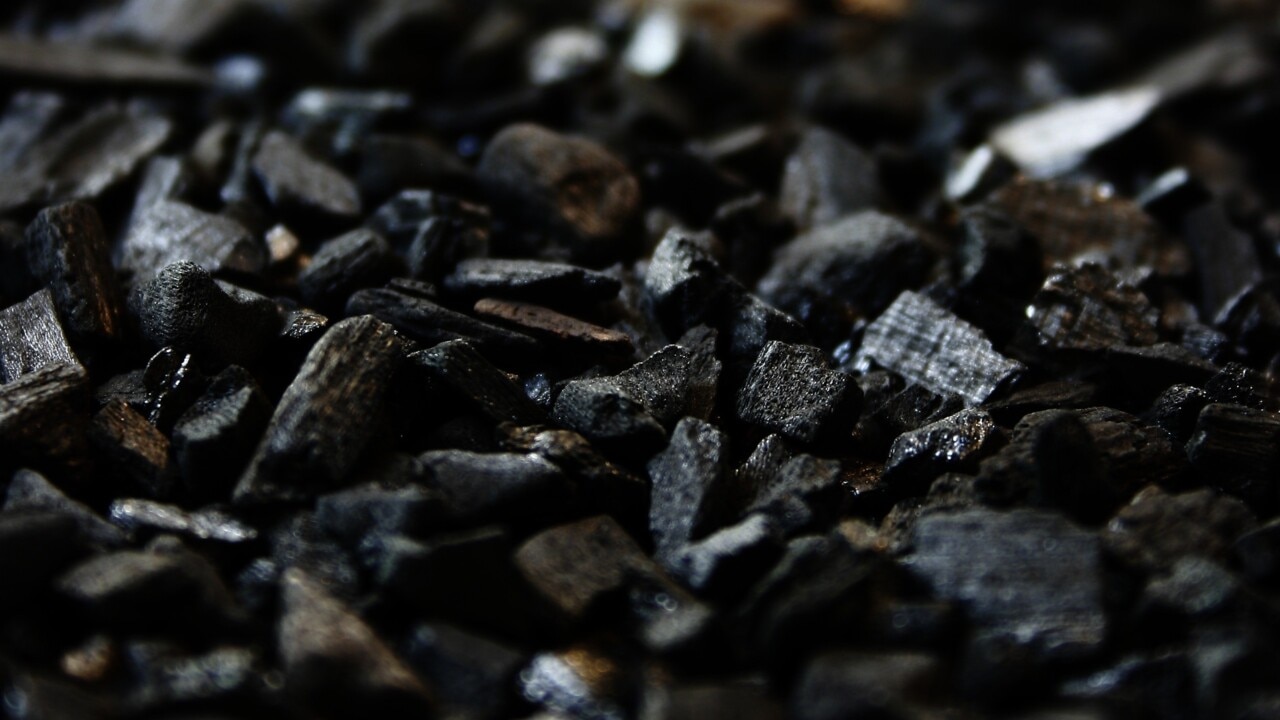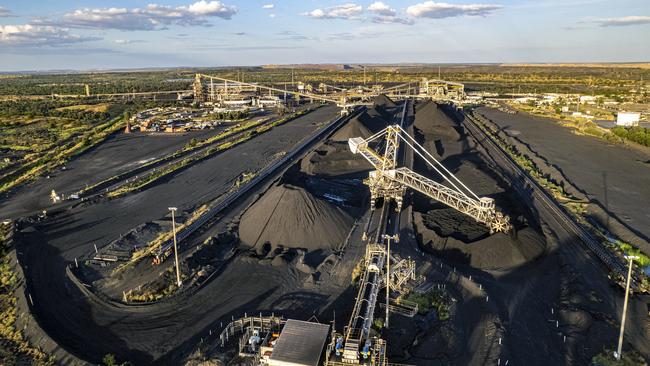Coronado Global Resources holds back dividend cash, eyes growth opportunities
Coronado shares have taken a battering after the company’s dividend came in well beneath market hopes.

Coronado Global Resources shares tanked on Tuesday after the company declared only a minimal dividend despite beating analyst expectations by declaring a $US199m ($305m) net profit for the first half of the year.
Coronado only posted an interim dividend of US0.5c a share with its half-year results, at the bottom of its dividend policy, with the company telling shareholders it wanted to keep its options open for potential growth opportunities during the year. Its shares fell 11.5 per cent.
The company booked adjusted earnings before interest, tax, depreciation and amortisation of $US352m for the period, and said it finished June with available liquidity of $US534m and in a $US192m net cash position.
Coronado has a policy of paying out a minimum of US0.5c for each half year, and between 60 and 100 per cent of free cash flow across its annual results.
The company has been linked to the potential acquisition of BHP’s Daunia and Blackwater mines in Queensland, as well as to potential US growth opportunities, and chief financial officer Gerhard Ziems told analysts Coronado was keeping its powder dry for potential opportunities in the coal market.
“Our business continues to pursue organic and inorganic growth opportunities and, in order to provide the company with maximum flexibility to achieve this strategy, only declares the biannual fixed dividend at this time,” he said.
“Subject to the delivery of our strategic growth plans, ongoing operational performance and market conditions, the board will decide if special dividends should be declared – as the company has done in the past.”
Mr Ziems told analysts there was no change in the company’s formal dividend policy.

Coronado’s $US1.45bn in revenue for the half was down 25 per cent compared to the first half of 2022, on lower coking coal prices. The company’s adjusted EBITDA was down 58.5 per cent compared to the same period, with net profits down 65 per cent.
Its average realised coal price for the period – including US domestic sales – was 19.3 per cent lower, at $US190.90 a tonne.
Troubles in the Chinese economy have weighed down commodity prices in the first half of 2023, and Mr Ziems told analysts that coking coal demand in Japan and Korea was also relatively soft.
But he said the company remained upbeat on a coking coal price recovery later this year, as Coronado did not expect supply to lift in the near future.
“It looks pretty dire. It’s probably one of the worst steel markets I’ve seen in a decade at least,” Mr Ziems said.
“But the premium (hard coking coal) index sits at just under $US250 a tonne. So we might have discovered a new floor. If I look back at the last three months it actually didn’t go – and certainly not for a long time – below $US230 per tonne.
“From here on, I think when India comes back after the monsoon season – which should be in September – we will probably see an uptick in demand. And then when China comes back we will see more demand out of China.”
Barrenjoey analysts said on Tuesday that Coronado’s net profit was well ahead of its expectations, primarily on a lower than expected tax rate for the period. But Barrenjoey had expected the company to pay a dividend of US4c a share.
Coronado shares took a beating on the dividend declaration, with the company sold down 11.5 per cent at the close, finishing off 19c at $1.455.
Bids for BHP’s two Queensland coal mines are due on Wednesday.
Whitehaven Coal, advised by UBS and Bank of America; Coronado Global Resources; Peabody Energy, advised by Goldman Sachs; Yancoal, advised by Royal Bank of Canada; BUMA; and Stanmore Coal are in the contest, with the mines set to sell for a combined $US3bn-$US5bn.


To join the conversation, please log in. Don't have an account? Register
Join the conversation, you are commenting as Logout